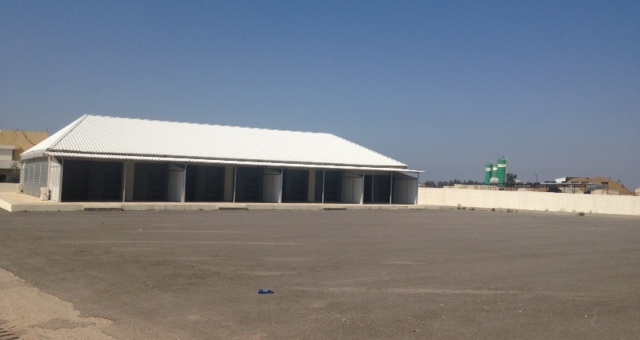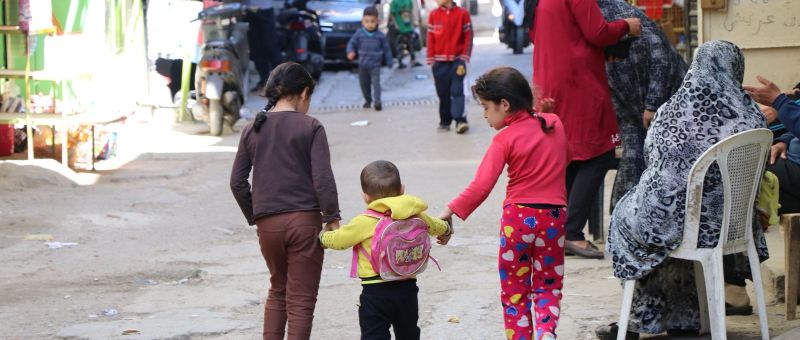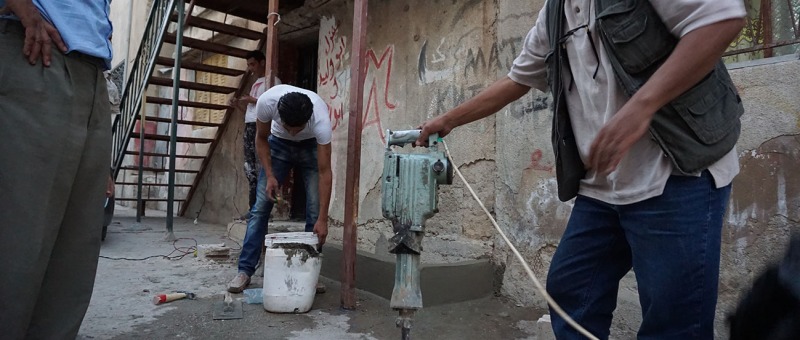In this post, Estella Carpi examines the interface between ‘the urban’ and the humanitarian system in the small urban centre of Halba, in order to shed light on the antagonistic and, at times, collaborative relationships between local authorities, local and refugee labourers, and international humanitarian agencies. If you find this piece of interest, please also…
Tag: humanitarianism
The Localisation of Aid and Southern-led Responses to Displacement
The Localisation of Aid and Southern-led Responses to Displacement: Beyond instrumentalising local actors By Elena Fiddian-Qasmiyeh, Refugee Hosts PI and UCL Displacement is primarily a ‘Southern’ phenomenon, with around 90% of all refugees having fled from one country in the global South to another Southern state, through processes of South-South migration. It is equally the…
Turkey – Crossroads for the Displaced
The conflict in Syria has entered its seventh year. In this time, millions of refugees from Syria have travelled through - or have become stuck in - Turkey, a country that has in turn been shaped by recent political flux. From this position, refugees from Syria - and the NGOs, faith groups and agencies that seek…
Before Defining What is Local, Let’s Build the Capacities of Humanitarian Agencies
In this piece, Dr Janaka Jayawickrama and Bushra Rehman argue that the localisation of aid agenda is shaped by a discourse of global humanitarianism that is characterised by a particular, cultural relationship to power. This suggests that current discourses on localisation have largely been North-centric, often overlooking the Southern contexts and histories that shape ‘the local’…
When Local Faith Actors Meet Localisation
Efforts to bring local faith actors (LFAs) into the wider humanitarian apparatus have been a key aim of the localisation of aid agenda. In this piece, Olivia Wilkinson (Director of Research of Refugee Hosts' research partner, the Joint Learning Initiative on Local Faith Communities) argues that there is a need to ensure that such engagements provide space…
Does Faith-Based Aid Provision always Localise Aid?
Attempts to localise humanitarian responses have resulted in a growing awareness on the part of international actors of the opportunities that come from working with local faith communities (as explored on Refugee Hosts here, here and here). However, as Estella Carpi argues, there is a need to reflect on local contexts to ensure that engagements with…
Humanitarian access and the role of local organisations
As the formal humanitarian sector works to develop more meaningful partnerships with local organisations and communities, there is a need for international organisations to take a step back. As Eva Svoboda argues in this piece, this is because it is often local organisations and communities that have the access and networks to meet the needs…
Giving Refugees a Voice? Looking Beyond ‘Refugee Stories’
How does UNHCR narrate refugee stories through its official media? In this piece, Leonie Harsch adopts a critical approach, and builds on a number of important arguments put forward by researchers, to argue that the telling of 'refugee stories' by humanitarian organisations can sometimes result in exclusionary outcomes - this is especially the case when individual…
‘Refugees. Present/Absent.’ Escaping the traps of refugee (mis)representations
In this piece, Dominika Blachnicka-Ciacek explores the problematics of photographic representations of singular suffering refugees and their impact on political discourse in Poland. In a challenge to this, Dominika reflects on her own approach to representations, reflected in her "Refugees. Present/Absent" exhibition, which sought to focus on the materiality of everyday experiences and the refugee journey as a…
CfP: Hospitality and Hostility Towards Migrants: Global Perspectives
We are pleased to share this call for papers on behalf of Dr. Mette Berg (UCL) and Dr. Elena Fiddian-Qasmiyeh (PI of Refugee Hosts), who are the editors of the new journal, Migration and Society. This new interdisciplinary journal is committed to critical research that situates migration in a wider societal, historical and geographical context, and for…










You must be logged in to post a comment.